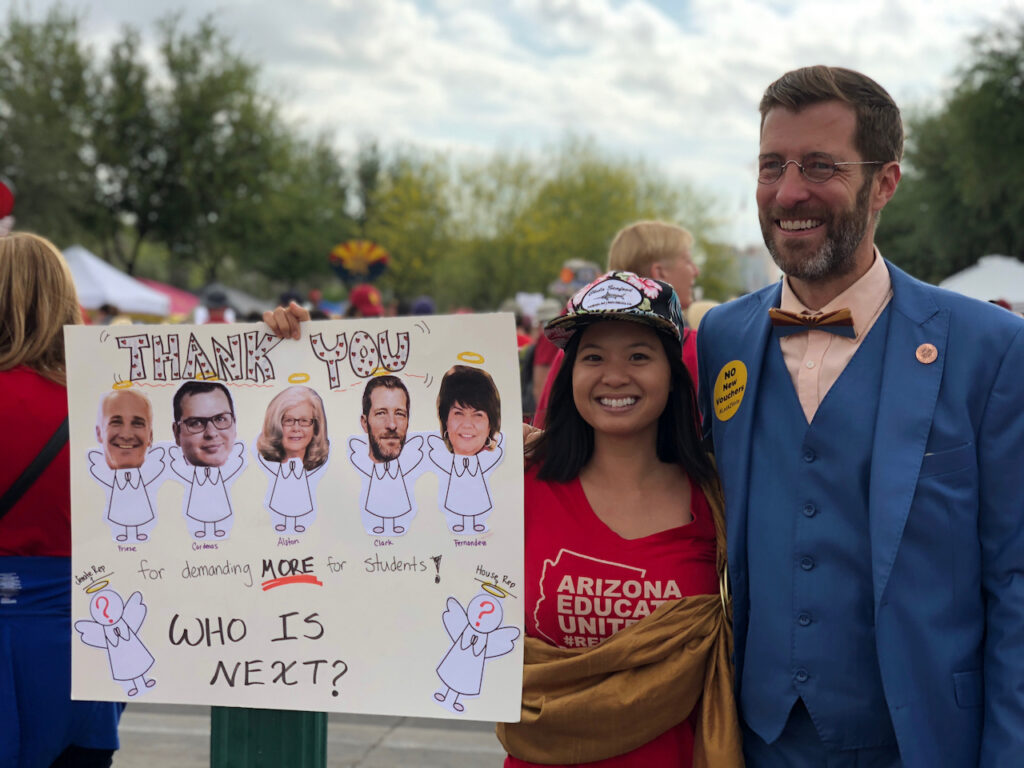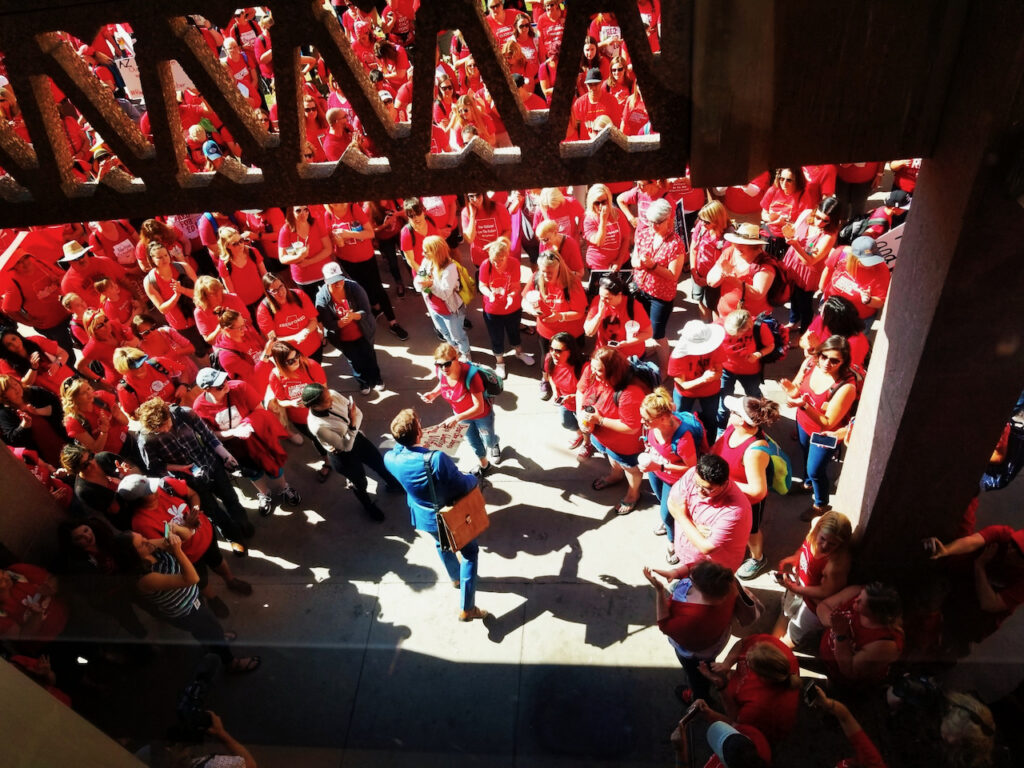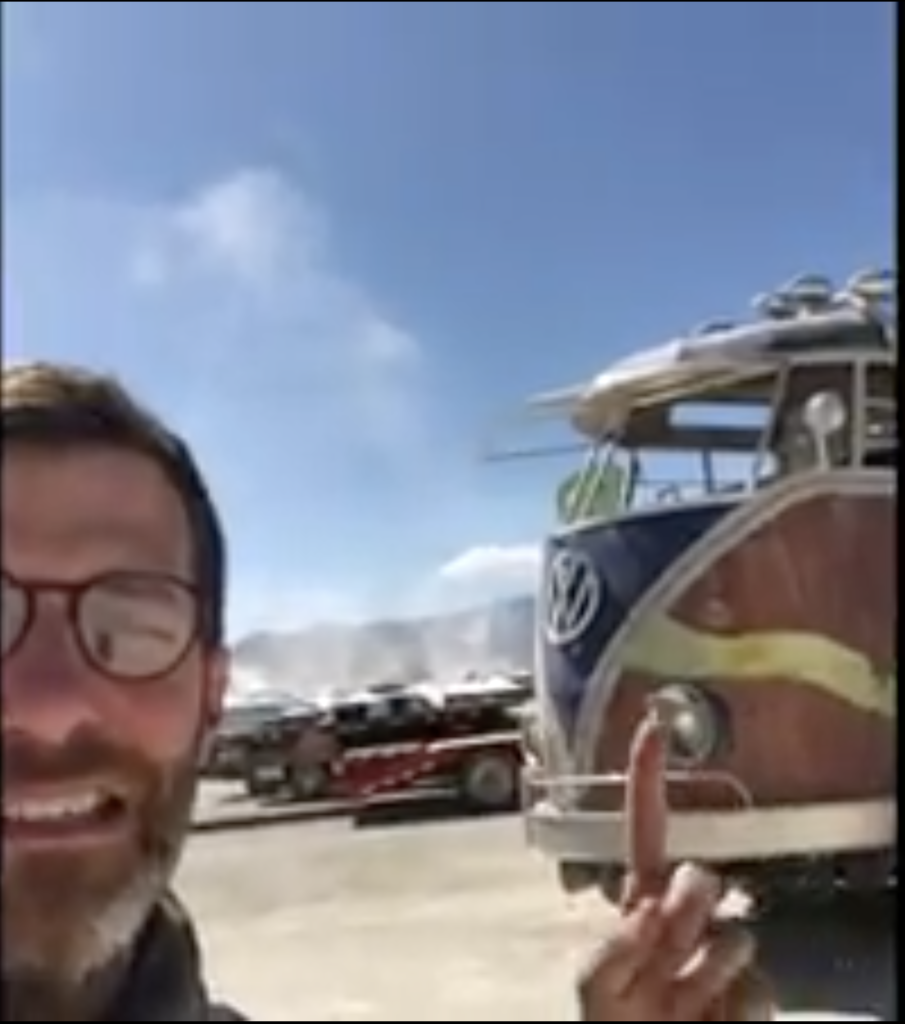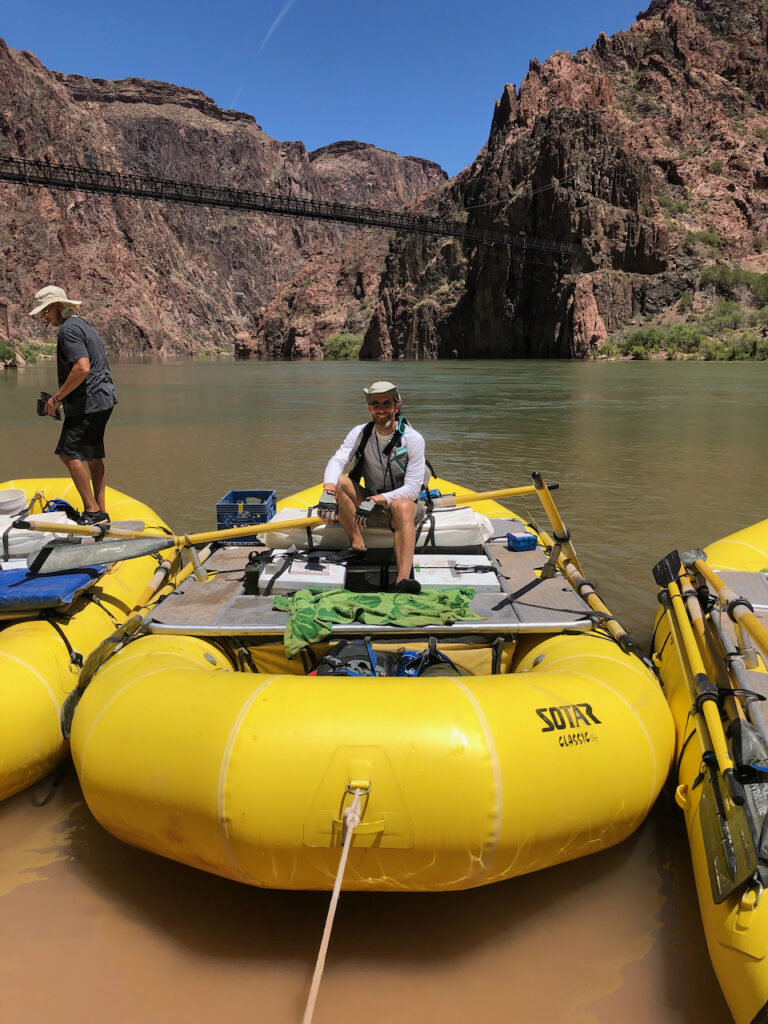On Nihilism
It’s tough to talk about this particular topic.
I don’t want it to sound as if I don’t take responsibility for allowing nihilism to infect my life. Because I do. Although it might come across that way in the video I shot from Yellowstone.
This starts back when Trump was first elected in 2016. When we first saw that he was employing the same tried and true techniques of similar authoritarian figures: sewing mistrust in the media in order to get people to throw their hands up and only believe him, rejecting objective scientific truth, embracing conspiracy theories to confuse issues and dividing the country in to “us and them”.
Around that time I also saw just how destructive many of the “Bernie Bros” were, as they seemed to enjoy making political discourse angrier and less compassionate. This was a candidate I supported, but I saw over the campaign year how some of his followers turned toward litmus test politics as a means to gain power, having little experience and little understanding of how much that approach only served to fracture a party that dearly needed to be unified.
Some of the infection of nihilism, to be sure, had its roots going back two decades as I fought seemingly fruitlessly to express to people how we needed to live more in balance with our environment. Whether that meant addressing climate change, finding healthier agricultural practices, reducing over-fishing or conserving precious water in the desert, I saw time and time again that the public vacillated between expressing concern but also rejecting any meaningful efforts to do anything about it.
It seemed that people were unwilling or unable to restrain their rabid desire to consume and expand outward, damning all evidence from the environment around which shows us that populations that don’t live in balance soon collapse.
As we moved in to the latter half of the 2010s, the often-ignored predictions of environmentalists from decades prior became more real: water depletions in the desert, heat islands, mountains of plastic waste, carbon emissions and increasingly larger and larger vehicles, each carrying only one passenger on a degrading long commute, were depleting air quality.
I looked around at my fellow Democratic legislators. Some of whom were happy to pound their desks sanctimoniously about the need to protect the environment. But then they would toddle off at the end of their days to their gas guzzling trucks, with pristine, never used truck liners; oblivious to their own contributions to the problem.
I have no objection to trucks, by the way. But the majority of people who have them use them less than 1% of the time to haul anything, let to make a living with their use.
But my growing pessimism about humans and the growth of myopic Christian nationalism served as the rich soil for the seeds of nihilism that came next.
Looking back, I can’t find a good reason that I found myself in a relationship with a proud nihilist. I was most certainly afraid of being alone and probably felt that this person, who was pursuing me enthusiastically, was as good as it would ever get. While I believed I was strong enough to help this person evolve in to a more optimistic and productive contributor to society, I had no idea just how toxic nihilism is, or how it would eat away at my resolve.
I found myself thinking, even as I fought hard to defeat the malicious legislation being run in the Arizona Legislature, that none of our efforts mattered. And by that, I don’t mean in the sense that we should not take things so seriously. Rather that all of our political efforts are for naught. After all, I can still hear the infectious thoughts now, humans are incapable by design of controlling themselves, or that Americans are doomed to lose their democracy to authoritarians. All populations in the natural world, where humans exists, will expand until they collapse. All democracies eventually contort in to dictatorships, I too often thought.
I became miserable, despite my efforts. I escaped in to my weekends and took all the wrong steps to avoid the reality around me. As I progressed down the hole of nihilism, I disliked myself more and more. I was a failure and a fraud because I could not stand up strong and fight. I am, after all, from Arizona, the state of luminaries like Gabby Giffords and John McCain, who endured thousands of times more hardship than simple nagging nihilism.
And, it is not lost on me that giving in to nihilism is a very privileged act. So many people do not have the luxury to become paralyzed by pessimism. This fact also added to my deepening self-loathing.
This, I’ve come to believe, is probably why I lost my 2018 election. I stopped thinking creatively and enthusiastically, as I had back in the days when I spearheaded efforts to reform redistricting or when I managed a campaign (with an all-star cast of leaders) to defeat payday lenders in Arizona.
I endorsed a running mate more out of just “doing things they way they’ve always been done” rather than listening to my inner voice that had always sought fairness and progress.
After my loss, I was devastated. And unlike my loss in 2010, I did not get back on the horse. I checked out. I felt that I needed to re-assess everything. My relationship with the nihilist ended, not surprisingly because she was not honest about who she was, and I was bitter. Very bitter.
I resolve to find my way out of the pit I was in, but that did not mean that I new how to defeat the cancer of nihilism.
Over 2019 I got a Kundalini Yoga teaching certificate, despite being a healthy skeptic of all of that. I went to Burning Man. To be fair, I did it in the most “Ken Clark” way. I produced a 6-part video series on whether the event lived up to its principles.
I also rafted the Colorado River for the second time.
But the nihilism stuck with me and gnawed at me, though. I continued to escape reality through parties and ill-advised relationships. While I liked being a realtor and loved helping clients, I saw a market increasingly dominated by venture capitol firms buying up hundreds of thousands of homes, driving up prices, driving first time home buyers out of the market and adding to homelessness.
I turned a corner in 2020, oddly enough while the rest of the world crumbled under Covid and a tense election.
I found myself consulting for a whole list of groups working on various elements of the energy transition: electric vehicles, renewable energy, energy efficiency, coal transition and the energy/water nexus. These were all brilliant and dedicated people who on a daily basis fought and most often lost battles against fossil fuel-sponsored politicians and companies. Yet they came back to the fight every day.
Rather than hating myself for not being strong enough to rebound after 2018, in working with these people I came to see that I was part of a community that always had been and may always be fighting a fight that can only ever be won incrementally.
I came to realize that there are two things that most effectively fight noxious nihilism: community and scope.
When we work in a community of people, we can see progress. Even if that progress is slow and halting, if we have a community that we trust and admire, when we believe in the cause, we can keep pessimism at bay.
It may seem like such an obvious thing to some. I know some great activists and politicians to report that they regain their strength after every battle through their significant others, through their families. That was lacking for me. I loved my parents while they were alive, and extended family. But they are all conservative and we just didn’t have the type of relationship that allowed me to unwind and recharge.
And, of course, my romantic relationship at the time drained me at the end of the day, rather than nourished me. I can only blame myself for getting myself in to that, of course.
The other crucial part of fighting nihilism is scope. It took me longer to realize this. None of us, not even the most effective public servant can solve every problem alone. As I railed against people for failing to strive to live in balance with our environment, for supporting news organizations that were obviously lying to them about climate change, or for putting immediate wants over the needs of the next generations, I failed to see were we were advancing.
While it feels like we will not decarbonize in time to avoid the worst damage and human loss, for instance, perhaps my scope now is to fight just as hard to minimize it. After all, the price of renewables and batteries have been dropping like a rock, and the pace of innovation is inspiring.
That just leaves us the task of convincing lawmakers to do the right that. Well, that’s my wheel house. I can pick up an oar and row with others in that boat.
So, it may seem like an obvious thing to some that nobody can do it alone, or that you need community.
They are old tropes, right? But that is the very nature of an affliction such as nihilism. It is blinding.
So, here I sit in my van on this remote work van live adventure. I still struggle with nihilism, as any person with a chronic disease might. But it is not what it is.
I’m on this adventure with the specific goal of finding where I want to plug in again. Not if.
Where can I find the community and scope that will keep me nourished and keep me fighting.
It may be in Arizona. It may not. I’m still thinking of the factors that will define that next step.
Where is your community and what is your scope?





